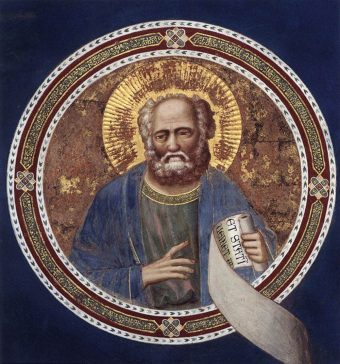The book of Malachi is the last of the twelve Old Testament writings collectively referred to as the Minor Prophets. It is also the youngest writing of these prophets and the last book listed in the King James that comes before the New Testament.
[Location of Old Testament Graves]
Malachi is one of the many writings considered a part of the second of three major Old Testament divisions known as the Prophets. The other two sections are the Law and the Writings (Psalms) (Luke 24:44).
Date Written, Location
The book of Malachi, written in ancient Israel (more precisely ancient Judah), was penned around 400 B.C.
The Author
Malachi's name means "my messenger" (Strong's Concordance #H4401). His book, unfortunately, reveals nothing about the prophet's personal life such as what he did for a living, who was his father or tribe and so on. Additionally, the Bible, and even tradition, are also silent regarding how the prophet died or where he was buried.
Time Period
Persia's Cyrus the Great issued the command to allow Jews to return to Judah and Jerusalem, for the rebuilding of the temple, in 539 B.C. (Ezra 6, 2Chronicles 36:22 - 23). It will take, however, until 516 B.C. for the reconstruction of the magnificent temple to be completed.

[Picture of Jerusalem's Temple]
Malachi wrote his book after the temple was rebuilt and the Levitical priesthood was again serving in Jerusalem.
Malachi Chapter Outline
Chpt. 1: Malachi opens with God's people doubting his love. The Lord's response to their doubt was to reveal he choose to greatly favor Jacob (the patriarch from whom came Israel's twelve tribes) above his twin brother Esau (Edom). The Lord then questions his priests as to why they do not properly revere him (Malachi 1:6).
God then responds to questions regarding how is name is despised among the priests and how he is defiled among them (Malachi 1:6 - 10). He also asserts that his name will be great not only among his priests but the entire world (verses 11).
[Best Bible Verses About Love]
The chapter closes with the Lord's condemnation of offerings that are far from the quality deserving a great King!
. . . ye brought that which was torn, and the lame, and the sick; thus ye brought an offering: should I accept this of your hand? saith the Lord (Malachi 1:13).
[Meaning of Biblical Sacrifices]
Chpt. 2: God opens the chapter by warning his priests that their unwillingness to repent and change their ways will bring sever consequences.
Behold, I will corrupt your seed, and spread dung upon your faces, even the dung of your solemn feasts; and one shall take you away with it (Malachi 2:3).
The Lord then challenges those who serve him to live up to his high standards (Malachi 2:7).
The entire tribe of Judah is then condemned for marrying the pagan (non-Israelites) women around them (Malachi 2:11 - 12). This prohibition, given at the time of Moses, was meant to keep the Israelites from falling into idolatry (Exodus 34:11 - 16, Deuteronomy 7:3 - 4, Joshua 23:12 - 13).
[Are Marriage Contracts Biblical?]
[Do Couples Need a Marriage License?]
Judah is also chastised for its men breaking their marriage covenants with their wives and divorcing them (Malachi 2:13 - 16). This goes against God's will which is to have his people produce godly children that reflect his glory to the world.
The chapter closes with the Lord revealing he is wearied by his people claiming it is better to pursue evil than good (Malachi 2:17).
Chpt. 3: Chapter 3 opens with a two-fold prophecy. The first prophecy foretells of someone who will prepare the people for the Lord's arrival (Malachi 3:1). This prophecy is fulfilled in the ministry of John the Baptist.
[Jesus Reveals He is the Messiah!]
The second prophecy is that the Lord himself, the "messenger of the covenant," will appear suddenly at Jerusalem's temple (Malachi 3:1). This event took place during Jesus' first Passover of his ministry (John 2:13 - 21).
God then reveals he will judge those indulging in sorcery, adultery, lying when they should tell the truth, cheating those who work for them and those who refuse to help the poor and needy (Malachi 3:5).
The people are then called into question for robbing God by not paying the tithes and offerings he commanded (Malachi 3:8 - 10).
The Lord then takes issue with the people believing that it is vain and useless to serve him (Malachi 3:13 - 15).
Chpt. 4: The final chapter of Malachi warns that those who indulge in wickedness and refuse to repent will receive the ultimate penalty. They will be burned up such that nothing will remain of them, a foreshadowing of the final judgment where the wicked are tossed into the lake of fire (Revelation 20:13 - 15).
Those who obey the Lord, however, are promised to be healed and greatly blessed (Malachi 4:2).
[What Will Happen on Judgment Day?]
The chapter closes with one final prediction that someone with the power of Elijah the prophet will appear to turn people's hearts toward repentance (Malachi 4:5 - 6). This prophecy was primarily fulfilled in John the Baptist's ministry (Luke 1:17, Matthew 11:7 - 10).